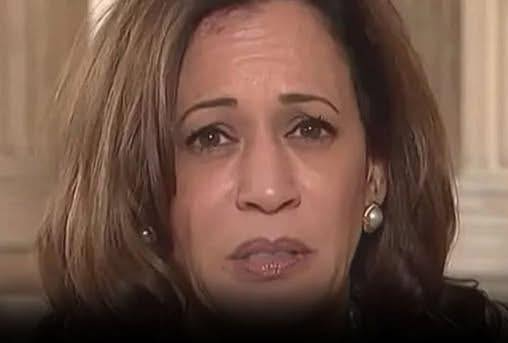Just twenty minutes ago in California, Kamala Harris reached a political milestone the country has never seen. With the final votes tallied at the Democratic National Convention, she was officially confirmed as the Democratic Party’s nominee for President of the United States. The arena erupted — cheers, applause, waving signs, tears — all marking the historic weight of the moment. Harris, the first woman of color to lead a major party’s presidential ticket, stepped into the spotlight not as a running mate or second-in-command, but as the face of the Democratic Party heading into the November election.
Her nomination ended months of speculation and internal maneuvering following President Joe Biden’s decision to step aside. While Biden’s endorsement cleared the way, the party still required the formal vote — and it delivered swiftly and decisively, projecting unity even if some delegates were uneasy about the process.
Harris now carries the full weight of a party long pulled in different directions. Her campaign is expected to focus relentlessly on three key issues: reproductive rights, economic fairness, and climate policy. While these topics aren’t new, Harris intends to present them with sharper edges than the administration has before. Advisers are signaling a more aggressive messaging strategy, emphasizing not just policy contrasts with the Republican candidate but differences in temperament, worldview, and leadership style.
Supporters see this as Harris’s moment. Charismatic and battle-tested, she has the potential to energize young voters and moderates who have drifted away in recent elections. For many women, especially women of color, her nomination feels deeply personal. Grassroots and progressive groups celebrated immediately — watch parties turned into impromptu rallies, and social media flooded with historic comparisons and messages of pride.
Yet the path ahead is far from easy.
Harris inherits a party strained by ideological divisions — progressives frustrated with centrism, moderates worried about losing swing voters, and long-time Democrats weary of internal conflict. She must unify all factions while appealing to undecided voters who feel politically burned out, skeptical, or distrustful of both parties.
Republicans wasted no time. Within minutes of her official nomination, conservative commentators framed the election as a referendum on the Biden-Harris years — inflation, immigration, foreign policy, crime. They positioned Harris as an extension of the administration’s perceived weaknesses, while her campaign insists she will chart her own course.
Polls suggest a tight race. Swing states are razor-close, suburban battlegrounds unpredictable, and national sentiment volatile. Harris enjoys strong support among younger voters, college-educated women, and minority communities but struggles with older voters and those concerned about economic uncertainty. Her Republican opponent polls strongly on toughness and leadership, while Harris scores higher on competence, empathy, and understanding middle-class struggles.
The election could go either way — and both sides know it.
Inside the convention hall, Harris walked onto the stage moments after confirmation to deafening applause. Delegates waved American flags, campaign placards, banners reading “Madam President,” and homemade signs proclaiming “History Happens Here.” The symbolism was unmistakable — a Black and South Asian woman at the helm of a major American party, ready to compete for the Oval Office.
Her acceptance speech balanced gratitude with resolve. She thanked her family, acknowledged Biden’s service, and pivoted to the stakes of the election. She promised to protect reproductive freedom, declaring, “No politician should control a woman’s body.” She pledged to rebuild the economy from the middle out, not the top down, and vowed to tackle the climate crisis “with the urgency science demands.” She did not shy away from the challenges ahead, warning that the election would test America’s values.
She reminded the crowd that her career has been shaped by tough fights — as a prosecutor, California’s attorney general, senator, and vice president. The national spotlight, pressure, and scrutiny are nothing new to her.
Reactions poured in. Progressive groups hailed her nomination as a victory for representation and a milestone for women in leadership. Advocacy organizations celebrated it as a turning point for reproductive rights. Younger activists applauded her stance on climate and education. Meanwhile, conservative voices mobilized instantly, criticizing her record on immigration, policing, and the economy. The campaign effectively began the moment her nomination was confirmed.
There is no calm ahead. This election promises to be among the most consequential — and combative — in modern American history. The economy is unstable, global tensions are high, public trust in institutions is low, and political divisions are sharp.
For now, though, the moment belongs to Harris.
A daughter of immigrants. A former prosecutor. The first Black and South Asian woman to serve as vice president. And now, officially, the Democratic nominee for President of the United States.
The stakes are historic, the pressure immense, and the timeline tight.
The nation is about to witness history unfold — one rally, one debate, one headline at a time.
